Scott Bair



Muhannad S. Bakir is the Dan Fielder Professor in the School of Electrical and Computer Engineering at Georgia Tech. He and his research group have received more than thirty paper and presentation awards including six from the IEEE Electronic Components and Technology Conference (ECTC), four from the IEEE International Interconnect Technology Conference (IITC), and one from the IEEE Custom Integrated Circuits Conference (CICC). Bakir’s group was awarded 2014 and 2017 Best Papers of the IEEE Transactions on Components Packaging and Manufacturing Technology (TCPMT). He is the recipient of the 2013 Intel Early Career Faculty Honor Award, 2012 DARPA Young Faculty Award, 2011 IEEE CPMT Society Outstanding Young Engineer Award, and was an Invited Participant in the 2012 National Academy of Engineering Frontiers of Engineering Symposium. Bakir is the co-recipient of the 2018 IEEE Electronics Packaging Society (EPS) Exceptional Technical Achievement Award "for contributions to 2.5D and 3D IC heterogeneous integration, with focus on interconnect technologies." He is also the co-recipient of the 2018 McKnight Foundation Technological Innovations in Neuroscience Awards. In 2020, Bakir was the recipient of the Georgia Tech Outstanding Doctoral Thesis Advisor Award.
Bakir serves on the editorial board of IEEE Transactions on Components, Packaging and Manufacturing Technology (TCPMT) and IEEE Transactions on Electron Devices (TED). Dr. Bakir serves as a Distinguished Lecturer for IEEE EPS.
Advanced cooling and power delivery for emerging system architecturesBiosensor technologies and their integration with CMOSElectrical and photonic interconnect technologiesHeterogeneous microsystem design and integration, including 2.5D and 3D ICs and packagingNanofabrication technologies
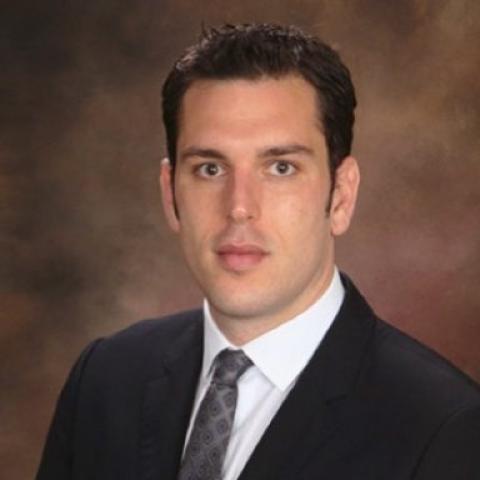
Jason Azoulay is an organic, organometallic and polymer chemist and internationally recognized leader in developing emerging semiconductor materials and devices. He has made significant contributions to the fields of polymer chemistry and materials science,bridging fundamental chemistry with real-world applications. His work focuses on the design, synthesis and characterization of advanced functional materials across numerous technology platforms, with an emphasis on organic semiconductors and conjugated polymers.
Azoulay co-directs the Center for Organic Photonics and Electronics, and his lab adds great strength to Georgia Tech’s leadership in soft-matter and hybrid optoelectronics. His work also complements numerous efforts at Georgia Tech that develop and apply advanced functional materials.
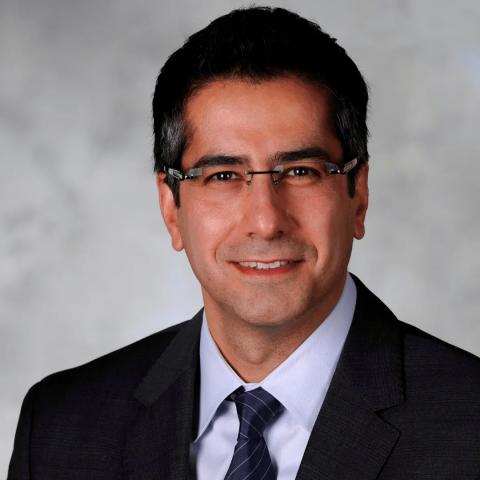
Farrokh Ayazi is the Ken Byers Professor of Microsystems in the School of Electrical and Computer Engineering at the Georgia Institute of Technology, Atlanta, GA. He received the B.S. degree in electrical engineering from the University of Tehran in 1994, and the M.S. and Ph.D. degrees in electrical engineering from the University of Michigan, Ann Arbor, in 1997 and 2000, respectively. His main research interest lies in the area of Integrated Micro and Nano Electro Mechanical Systems (MEMS and NEMS), with a focus on micro and nano mechanical resonators, and mixed-signal interface circuits for MEMS and sensors.
Ayazi is an editor for the IEEE Transactions on Electron Devices and a past editor for the IEEE/ASME Journal of Microelectromechanical Systems. He is a 2004 recipient of the National Science Foundation CAREER Award and has received the Outstanding Junior Faculty Member Award and the Richard M. Bass/Eta Kappa Nu Outstanding Teacher Award from the School of ECE at Georgia Tech. The author of over 200 refereed technical and scientific articles, Ayazi and his students have received several best paper awards at International conferences including MEMS, Transducers, Sensors, and Frequency Control Symposium. He served on the technical program committee of the IEEE International Solid State Circuits Conference (ISSCC) for six years (2004-2009). He was the chairman of the Display, Sensors and MEMS (DSM) sub-committee at the IEEE International Electron Devices Meeting (IEDM 2011).
In 2008, he co-founded and became the CTO of Qualtré, a spinout company of his research lab that develops bulk acoustic wave gyroscopes and motion sensors for personal navigation systems. Ayazi is a fellow of IEEE and holds 50 patents in the area of MEMS and Microsystems. He was the general chair of the IEEE Micro-Electro-Mechanical-Systems (MEMS) conference in 2014, held in San Francisco, CA.
Integrated Micro & Nano Electromechanical ResonatorsRF MEMSVLSI Analog Integrated CircuitsMEMS Inertial Sensors (Integrated Gyroscopes and Accelerometers)Micro and nanofabrication technologies
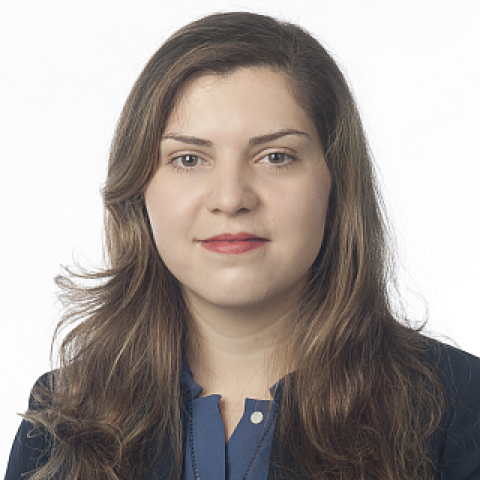
Azadeh Ansari received the B.S. degree in Electrical Engineering from Sharif University of Technology, Iran in 2010. She earned the M.S and Ph.D. degrees in Electrical Engineering from University of Michigan, Ann Arbor in 2013 and 2016 respectively, focusing upon III-V piezoelectric semiconductor materials and MEMS devices and microsystems for RF applications. Prior to joining the ECE faculty at Georgia Tech, she was a postdoctoral scholar in the Physics Department at Caltech from 2016 to 2017. Ansari is the recipient of a 2017 ProQuest Distinguished Dissertation Award from the University of Michigan for her research on "Gallium Nitride integrated microsystems for RF applications." She received the University of Michigan Richard and Eleanor Towner Prize for outstanding Ph.D. research in 2016. She is a member of IEEE, IEEE Sensor's young professional committee and serves as a technical program committee member of IEEE IFCS 2018.
Sensors and actuatorsMEMS and NEMSIII-V Semiconductor devices

David V. Anderson received the B.S and M.S. degrees from Brigham Young University and the Ph.D. degree from Georgia Institute of Technology (Georgia Tech) in 1993, 1994, and 1999, respectively. He is currently a professor in the School of Electrical and Computer Engineering at Georgia Tech. Anderson's research interests include audio and psycho-acoustics, machine learning and signal processing in the context of human auditory characteristics, and the real-time application of such techniques. His research has included the development of a digital hearing aid algorithm that has now been made into a successful commercial product. Anderson was awarded the National Science Foundation CAREER Award for excellence as a young educator and researcher in 2004 and the Presidential Early Career Award for Scientists and Engineers in the same year. He has over 150 technical publications and 8 patents/patents pending. Anderson is a senior member of the IEEE, and a member the Acoustical Society of America, and Tau Beta Pi. He has been actively involved in the
Audio and Psycho-AcousticsBio-DevicesDigital Signal ProcessingLow-Power Analog/Digital/Mixed-Mode Integrated Circuits

Energy Conversion, energy storage, nanomaterials, optical materials, photovoltaics, catalysis, electrical grid, energy storage
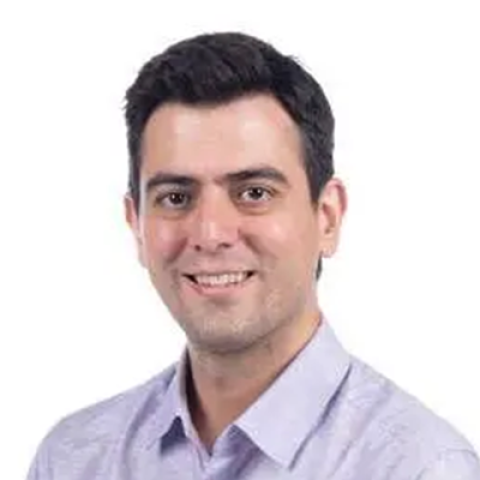
Amirali Aghazadeh is an Assistant Professor in the School of Electrical and Computer Engineering and also program faculty of Machine Learning, Bioinformatics, and Bioengineering Ph.D. programs. He has affiliations with the Institute for Data Engineering and Science (IDEAS) and Institute for Bioengineering and Biosciences. Before joining Georgia Tech, Aghazaeh was a postdoc at Stanford and UC Berkeley and completed his Ph.D. at Rice University. His research focuses on developing machine learning and deep learning solutions for protein and small molecular design and engineering.
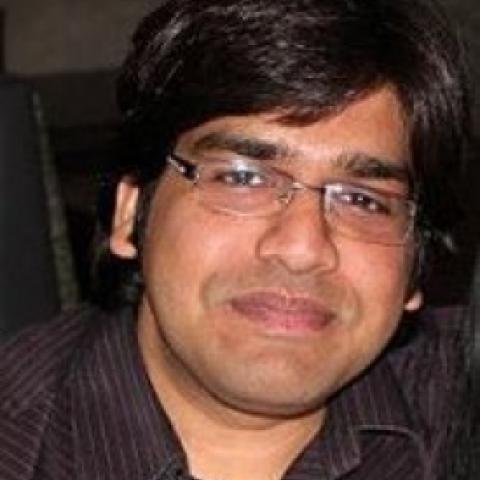
Vinny is an Assistant Professor at Georgia Tech with joint appointments at the School of Chemistry and Biochemistry and School of Biological Sciences.
A majority of antibiotics and drugs that we use in the clinic are derived or inspired from small organic molecules called Natural Products that are produced by living organisms such as bacteria and plants. Natural Products are at the forefront of fighting the global epidemic of antibiotic resistant pathogens, and keeping the inventory of clinically applicable pharmaceuticals stocked up. Some Natural Products are also potent human toxins and pollutants, and we need to understand how these toxins are produced to minimize our and the environmental exposure to them.
We as biochemists ask some simple questions- how and why are Natural Products produced in Nature, what we can learn from Natural Product biosynthetic processes, and how we can exploit Nature's synthetic capabilities for interesting applications?
Broadly, we are interested in questions involving (meta)genomics, biochemistry, structural and mechanistic enzymology, mass spectrometry, analytical chemistry, and how natural product chemistry dictates biology.
A majority of antibiotics and drugs that we use in the clinic are derived or inspired from small organic molecules called Natural Products that are produced by living organisms such as bacteria and plants. Natural Products are at the forefront of fighting the global epidemic of antibiotic resistant pathogens, and keeping the inventory of clinically applicable pharmaceuticals stocked up. Some Natural Products are also potent human toxins and pollutants, and we need to understand how these toxins are produced to minimize our and the environmental exposure to them. We as biochemists ask some simple questions- how and why are Natural Products produced in Nature, what we can learn from Natural Product biosynthetic processes, and how we can exploit Nature's synthetic capabilities for interesting applications? Broadly, we are interested in questions involving (meta)genomics, biochemistry, structural and mechanistic enzymology, mass spectrometry, analytical chemistry, and how natural product chemistry dictates biology.
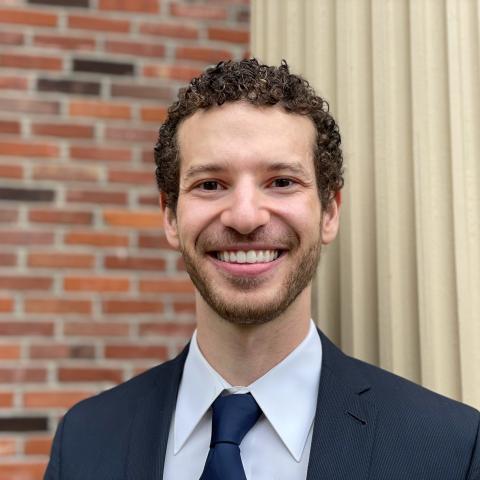
Alex Abramson is an assistant professor in the School of Chemical and Biomolecular Engineering at Georgia Tech. His research, which focuses on drug delivery and bioelectronic therapeutics, has been featured in news outlets such as The New York Times, NPR, and Wired. Abramson has received several recognitions for scientific innovation, including being named a member of the Forbes 30 Under 30 Science List and the MIT Technology Review Innovators Under 35 List. He is passionate about translating scientific endeavors from bench to bedside. Large pharmaceutical companies have exclusively licensed a portfolio of his patents to bring into clinical trials, and Abramson serves as a scientific advisor overseeing their commercialization. In addition to his scientific endeavors, Abramson plays an active role in his community by leading diversity and inclusion efforts on campus and volunteering as a STEM tutor to local students.
Abramson received a B.S. in chemical and biomolecular engineering from Johns Hopkins University and a Ph.D. in chemical engineering from MIT as an NSF Graduate Research Fellow under the direction of Professors Robert Langer and Giovanni Traverso. He conducted postdoctoral work at Stanford University as an NIH fellow with Professors Zhenan Bao and the late Sanjiv S. Gambhir.
The Abramson Lab develops ingestible, implantable, and wearable robotic therapeutic devices that solve key healthcare problems and provide measurable therapeutic outcomes. Our translationally focused research spans a multitude of areas, including (1) drug delivery devices for optimal drug adherence, (2) soft materials for bioelectronic sensors and therapeutics, and (3) preclinical drug screening technologies.